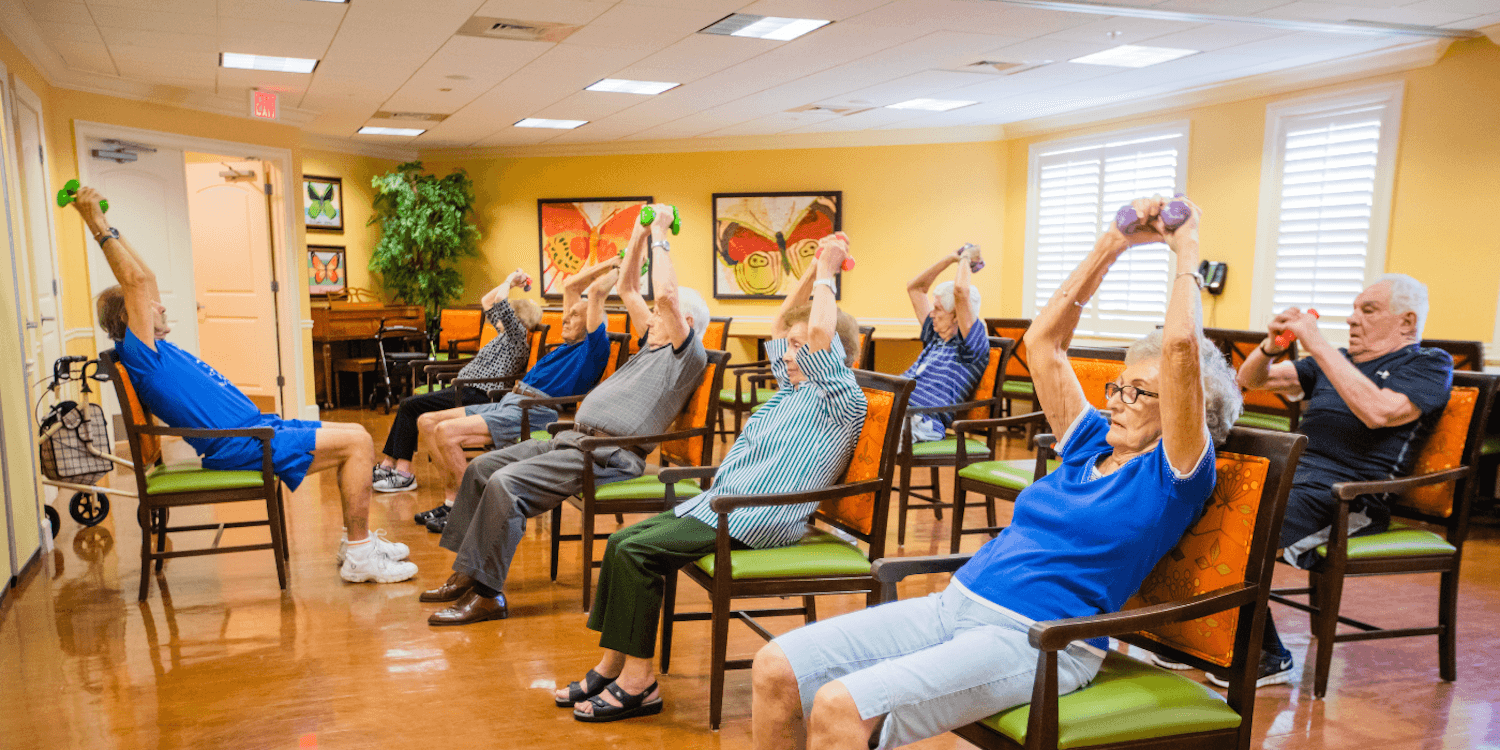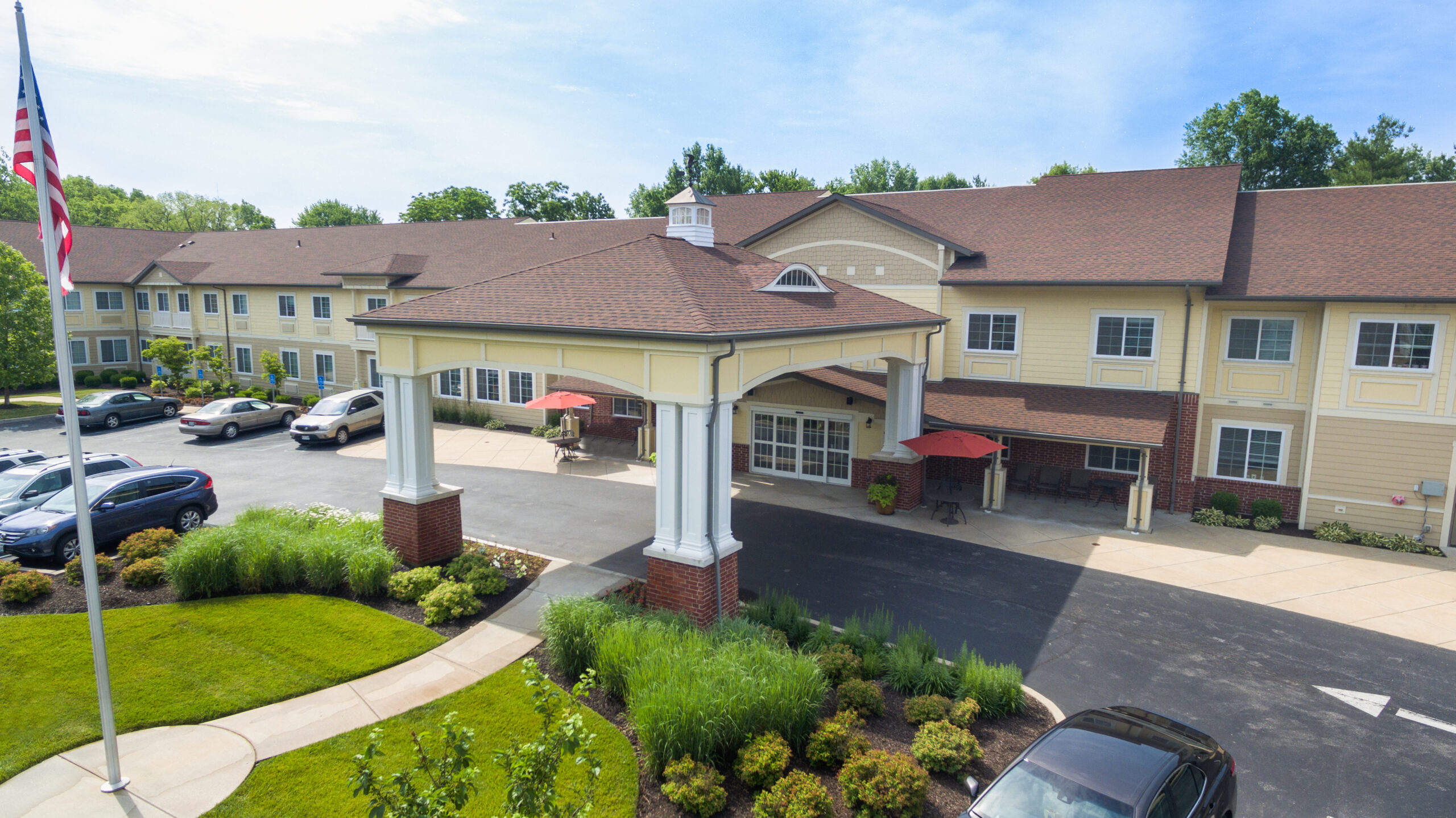Family-Oriented Facilities Offering Personalized Alzheimers Care Charlotte
Creating a Safe and Supportive Environment for Alzheimer's Treatment
The creation of a risk-free and helpful atmosphere for people with Alzheimer's is vital in improving their lifestyle. This includes not just physical adaptations within the home, such as lessening dangers and integrating acquainted components, but also the implementation of structured routines and significant tasks that accommodate their cognitive needs. Understanding the psychological and emotional dimensions of treatment can dramatically influence their sense of safety and security and link. Discovering these multifaceted methods can disclose critical insights right into reliable caregiving strategies that may transform the everyday experiences of both people and caretakers.
Understanding Alzheimer's Requirements
Regularly, people with Alzheimer's disease exhibit a series of demands that call for customized approaches to care. As the condition proceeds, cognitive decrease manifests in various methods, affecting memory, thinking, and even the capability to carry out everyday activities. Caretakers have to identify these progressing requirements to offer appropriate assistance and make certain a greater high quality of life for those impacted.
One crucial element of understanding Alzheimer's needs is identifying the relevance of routine and familiarity. People typically locate convenience in well-known patterns, which can minimize anxiety and complication. Caretakers need to make every effort to develop structured daily timetables that incorporate purposeful activities aligned with the individual's capabilities and interests.
Furthermore, effective interaction is vital. People with Alzheimer's may battle to reveal themselves or comprehend complex language. Caregivers should utilize simple, clear language, use non-verbal signs, and method energetic paying attention to cultivate understanding and connection.
Caretakers must urge engagement in community tasks or household gatherings, advertising a sense of belonging and function. Understanding these diverse needs is essential for creating a supportive treatment setting.
Creating a Safe Home
Producing a secure home for individuals with Alzheimer's condition is necessary to advertising and minimizing dangers independence. The design of the living room must prioritize safety while enabling personal comfort. First, remove possible threats such as loosened rugs, sharp things, and mess, which can cause falls or accidents. Make certain that paths are well-lit and clear, as proper lighting minimizes disorientation and enhances mobility.
Incorporating flexible features is additionally vital. Install grab bars in washrooms and near stairs, and take into consideration using non-slip floor coverings in wet locations. Furthermore, making use of contrasting shades for floors and wall surfaces can aid in differentiating spaces, helping to minimize confusion.
Experience is essential for people with Alzheimer's. Personalizing the atmosphere with familiar things and photographs can strengthen a feeling of belonging and safety and security - Alzheimers Care Charlotte. It is additionally advantageous to have actually a designated area for day-to-day activities, such as reading or crafting, which can supply structure to their day
Finally, applying a secure outside area enables safe exploration while getting in touch with nature. By attentively designing the home environment, caregivers can substantially boost the lifestyle for individuals dealing with Alzheimer's illness.
Enhancing Interaction Abilities

Non-verbal interaction, including faces, motions, and touch, plays a critical function in communicating empathy and understanding. Keeping eye call and a tranquil temperament can improve the comfort degree of the individual, promoting a sense of security.
Moreover, it is very important to exercise active listening. This entails being fully present, revealing patience, and permitting the person to share themselves without disturbance. Repetition may be essential; caregivers need to be prepared to review questions or subjects, as individuals with Alzheimer's might struggle with memory recall.
Furthermore, using aesthetic aids or hints, such as pictures or familiar things, can help with recognition and engagement. Eventually, enhancing interaction abilities is concerning developing trust and developing an environment where people really feel heard, valued, and understood, thus enhancing their top quality of life.
Motivating Social Communication
Cultivating significant social communications can considerably boost the well-being of individuals with Alzheimer's disease. Involving with others not just helps combat feelings of seclusion yet also boosts cognitive function and emotional health and wellness. Structured social tasks, such as team games, crafts Related Site and arts, or music treatment, produce possibilities for residents to connect with peers and caregivers, which can cause boosted mood and decreased anxiousness.
Developing a welcoming atmosphere that motivates socializing is vital. This can be attained by preparing communal spaces that facilitate interaction, such as comfortable seating areas or activity rooms. Additionally, incorporating familiar and culturally appropriate activities can spark memories and encourage engagement, permitting people with Alzheimer's to really feel more connected to their past experiences.
Furthermore, caregivers should be educated to identify and advertise social interaction among locals. Easy gestures, such as initiating conversation or helping with small group conversations, can aid people feel valued and included. On a regular basis arranged get-togethers ought to correspond yet adaptable, suiting differing levels of ability and interest. By prioritizing social interaction, we can considerably enrich the lives of those living with Alzheimer's, cultivating a feeling of neighborhood and belonging.
Sustaining Caregiver Well-being

To sustain caretakers, organizations ought to provide routine training and instructional resources to boost their understanding of Alzheimer's condition and caregiving methods. Offering access to reprieve treatment solutions allows caregivers to take required breaks, minimizing anxiety and exhaustion - Alzheimers Care Charlotte. In addition, cultivating a community through support system can facilitate emotional sharing and the exchange of useful guidance among caregivers, creating a network of mutual support
Psychological wellness sources, such as therapy solutions, can additionally be crucial in resolving the emotional toll caregiving can take. By prioritizing caregiver well-being, we create a more lasting caregiving setting that not just benefits the caregivers themselves but additionally boosts the total high quality of care received by individuals with Alzheimer's. Inevitably, sustaining caregivers is a crucial part in cultivating a effective and compassionate treatment setting.
Conclusion
To conclude, the development of a safe and encouraging environment for people with Alzheimer's is vital to improving their lifestyle. By focusing on security through thoughtful layout, promoting psychological well-being with acquainted aspects, and advertising interaction through structured regimens, caregivers can significantly influence the general experience of those influenced by this condition. Supporting caretaker well-being is vital, as it ultimately adds to a more caring and efficient care setting.
Repeating might be necessary; caretakers should be prepared to review concerns or subjects, as individuals with Alzheimer's might battle with memory recall.